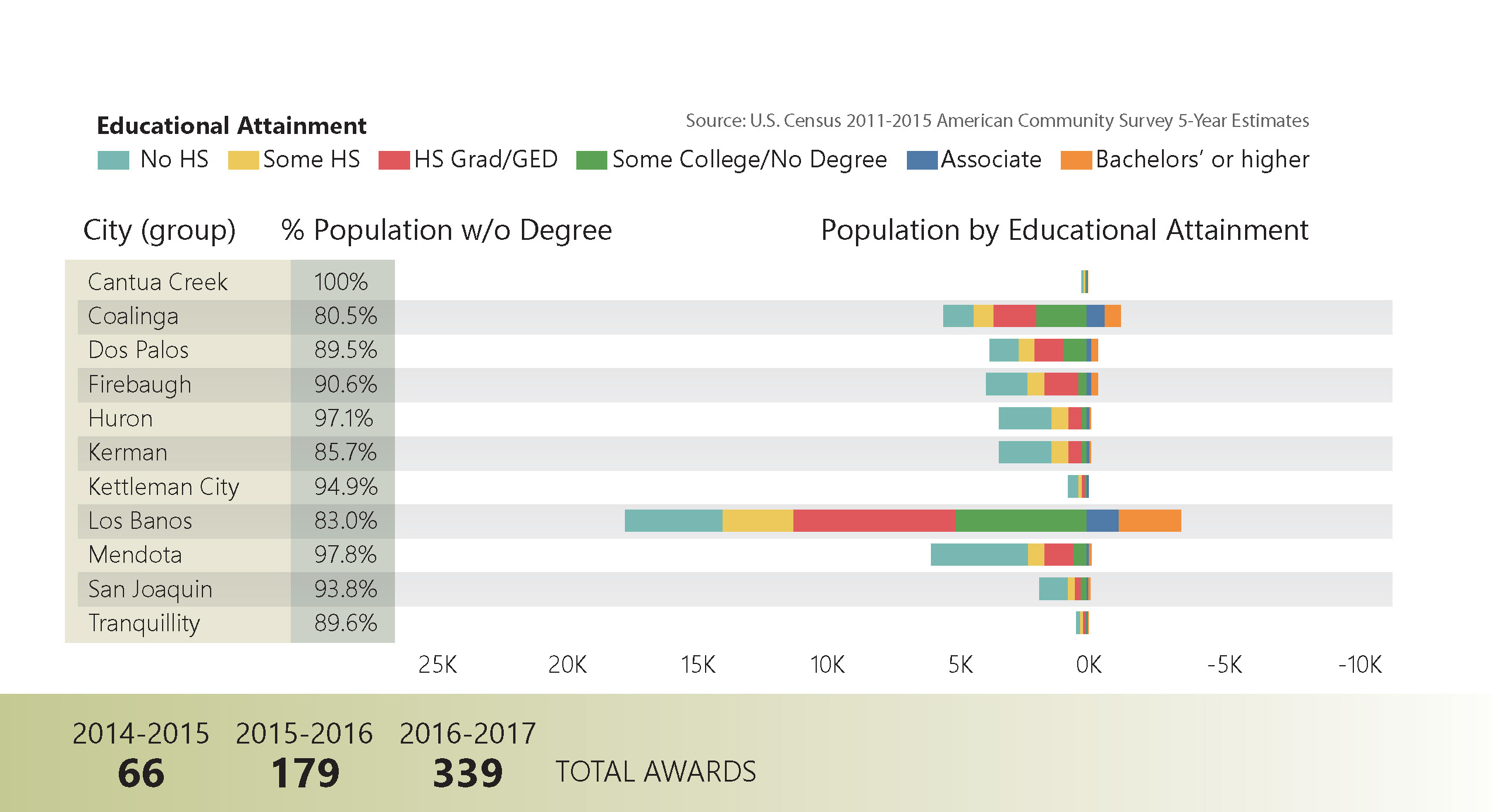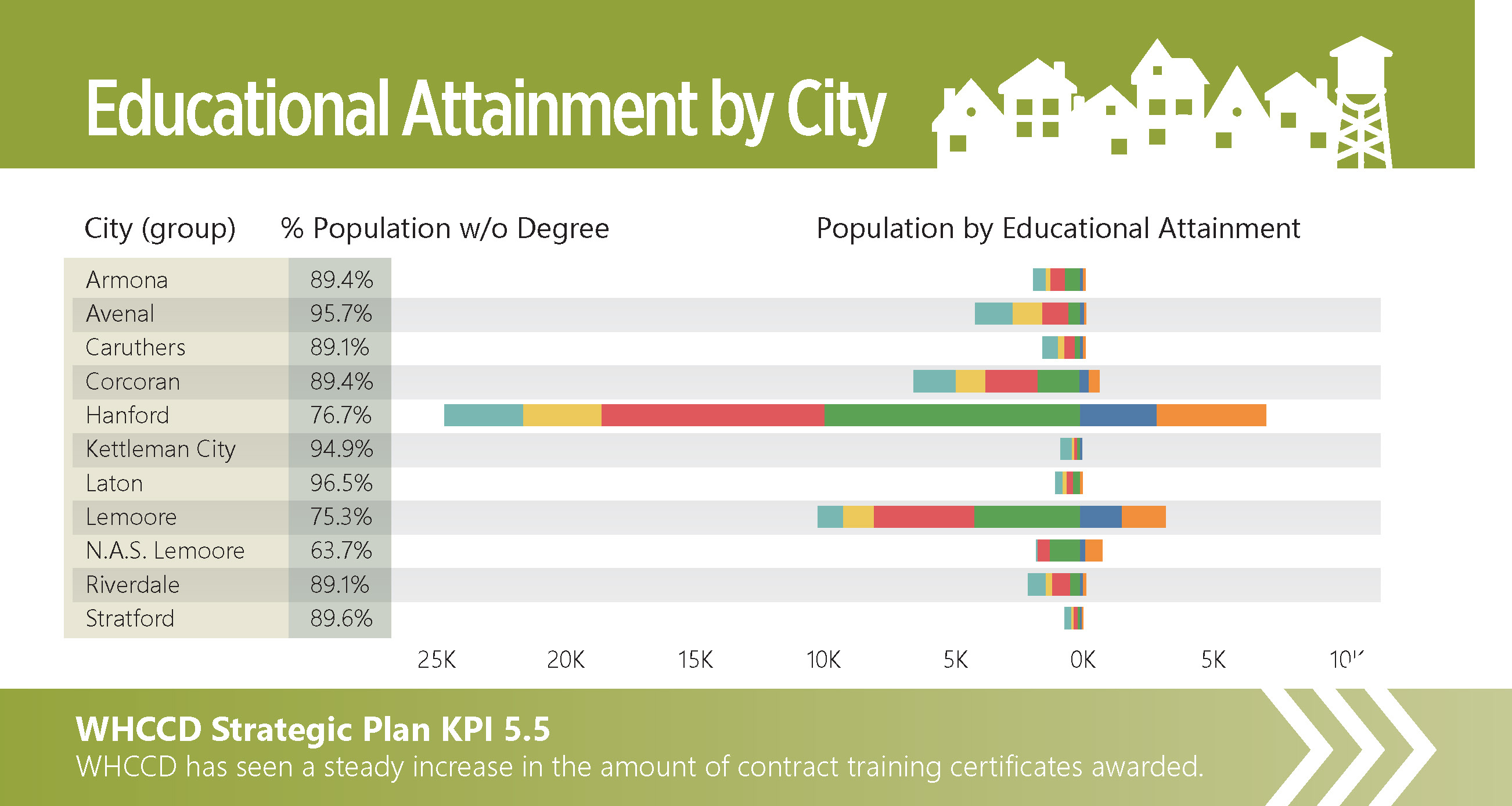WHCCD has seen a steady increase in the amount of contract training certificates awarded. Here is a look at the efforts that go into contract training and adult education in the WHCCD.


Picture a college student. Likely, you’d picture a young student, around 18 or so, who is going to college for the first time. In the West Hills Community College District service area, less than 7% of adults 25 or older attend college. However, those numbers are slowly changing thanks to a number of programs WHCCD has implemented over the past decade. These programs offer the chance for adults to learn basic skills, get back to school and get the training they need to fill in demand jobs and find careers that can, and often have, changed their families for the better.
“Our goal is to help people in our communities find a pathway to life success,” said David Castillo, Director of Special Grants at West Hills Community College District and the Director of the Westside Institute of Technology. “We want to make sure that we give people the skills they need to succeed, whether that’s specialized training or reading and math skill development, and serve the needs of our local employers.”
The Westside Institute of Technology, which started in 2007 as a collaborative project between WHCCD and K-12 districts in the areas of Firebaugh-Las Deltas, Golden Plains and Mendota Unified School District, offers training opportunities for adult workers in the region that are tied to employment needs in the area. WIT typically offers 10 to 20 trainings a year. In the past, it’s also help facilitate 2 plus 2 classes at local high schools, essentially classes where high school students earn both high school and college credit.
As a contract training provider, WIT offers trainings on residential electric, forklift, truck driving, and just about any other skill set that area employers might need prospective employees to learn.
Often, the companies that sponsor these trainings or host them ends up employing those who take part in the training through the WIT. Partnerships like this are integral to the work the WIT does, according to Castillo. In the past, WIT has partnered with companies including First Solar of Mendota, Fresno’s John R. Lawson Rock & Oil, Leprino-Purina, and others to place workers in jobs and to train. Lawson Rock & Oil has regularly provided space for truck driving training and hired those who complete the program. The WIT is also looking at a long term partnership with Western Propane Gas to deliver truck driving and technician training.
Castillo works closely with regional entities like the Workforce and Economic Development boards to identify community needs and offer training where the job seekers are in communities like Huron, Hanford, San Joaquin, Mendota and Coalinga.
Castillo also helps to coordinate another important adult education effort, separate from the WIT: Adult Education Consortium Block Grant (AEBG) classes.
The genesis of AEBG classes began with Assembly Bill 86, which was passed by the State of California to encourage adult education opportunities. A regional effort, the Adult Education Consortium that resulted from the bill facilitates classes that teach basic skills, ranging from English as a Second Language to basic computer and math skills. High school equivalency and citizenship courses are also offered.
Classes are offered districtwide and throughout the year, in partnership with local school districts, West Hills College Lemoore and West Hills College Coalinga, and Kings and Fresno County.
Castillo added that these classes, which are offered in rural communities from San Joaquin to Mendota, often also lead to students enrolling at West Hills College Coalinga and West Hills College Lemoore. Students from the WIT and AEBG often end up enrolling in Career Technical Education courses at West Hills and will also soon have the opportunity to earn credit for the training they’ve received through Prior Learning Assessment, a West Hills program that will give academic credit for prior learning outside of traditional classes.
However, for Castillo, one of the most important aspects of adult education like the WIT and AEBG is that educating a parent can change entire families. Once one family member gets an education, it can have a domino effect.
“When a parent gets this kind of opportunity and takes advantage of it, the benefit transfers right over to their children, in terms of earning more money,” Castillo said. “It’s also powerful though in that they see dad or mom go to school and they get inspired. Those dads and moms can support those families better and also be an example to their kids.”